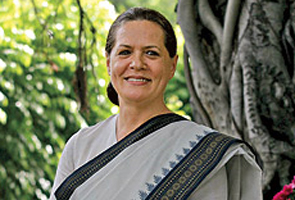 New Delhi: The Sonia Gandhi-led National Advisory Council has decided to take its battle with the government on the now-controversial issue of food security into the public domain.
New Delhi: The Sonia Gandhi-led National Advisory Council has decided to take its battle with the government on the now-controversial issue of food security into the public domain.Eight days after the Rangarajan panel, appointed by Prime Minister Manmohan Singh, rejected its recommendations on food security, the NAC has decided to dig in its heels, reflecting, council sources said, “Ms. Gandhi's determination to go ahead.” Indeed, on Friday, the NAC, at its ninth meeting, unveiled the framework of the proposed food bill, and immediately placed it on its website for comments from the public.
The sources told The Hindu that another note would be drafted shortly “to respond to the debate” and that, too, would be placed on the website for comments. The Rangarajan committee's comments were acknowledged, but not discussed in any detail, as it was “not considered appropriate to do so,” the sources said. Note was taken of the fact that the panel had only “questioned the feasibility, not the desirability” of the NAC recommendations.
While the NAC has recommended food entitlements for 75 per cent of the population, dividing it into the “priority” and “general” categories, the Rangarajan panel has ruled out legal entitlements not only for the general category but also those suggested for the most vulnerable sections such as children, pregnant women, migrants and destitute and homeless persons.
The NAC has asked the government to immediately specify the criteria for categorising the population into the “priority” and “general” households, as the proposed bill provides for mandatory inclusion of highly vulnerable groups to protect them from exclusion errors.
These groups, which also figured in the N.C. Saxena Committee report submitted to the Rural Development Ministry in August 2009, include the Particularly Vulnerable Tribal Groups, the “Maha Dalit Groups,” if so identified by the State, single women-headed households, households with a disabled person as breadwinner, households headed by a minor, destitute households dependent predominantly on alms, homeless households, and where any member of the household is a bonded labourer. The NAC also felt that the highest priority should be accorded to the Scheduled Castes and the Scheduled Tribes in the “priority groups” category.
Its draft bill framework stresses that the entitlements under the Public Distribution System, that is 35 kg a month — rice at Rs. 3 a kg, wheat at Rs. 2 and millet at Rs. 1t — to priority households, and 20 kg at a maximum of half the Minimum Support Price to general households, should not be reduced in any manner till the end of the 12th Plan period, which ends in 2017. The draft Bill also specifies that other entitlements — for maternal and child support and for special groups — cannot be reduced except by amending the Act. It sets transparency standards and outlines a grievance redress system, suggesting that over time the latter could be extended to similar legislation such as right to rural employment and education.
